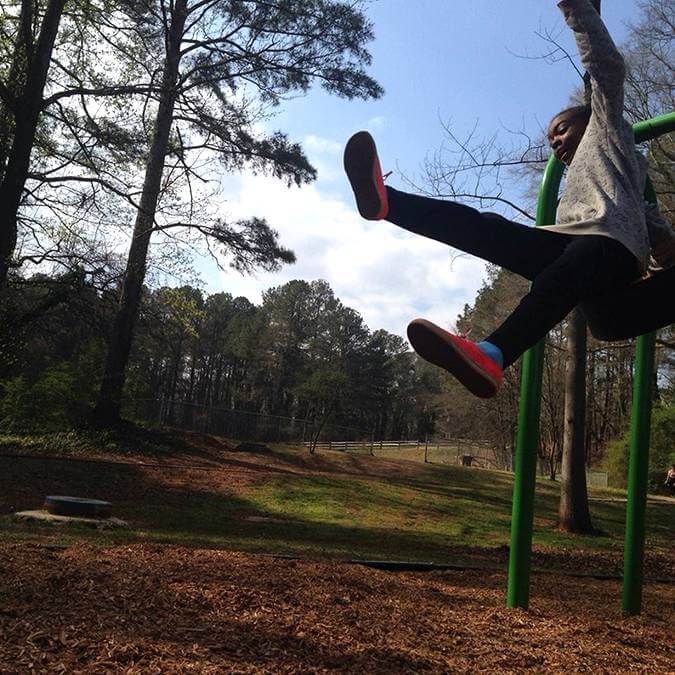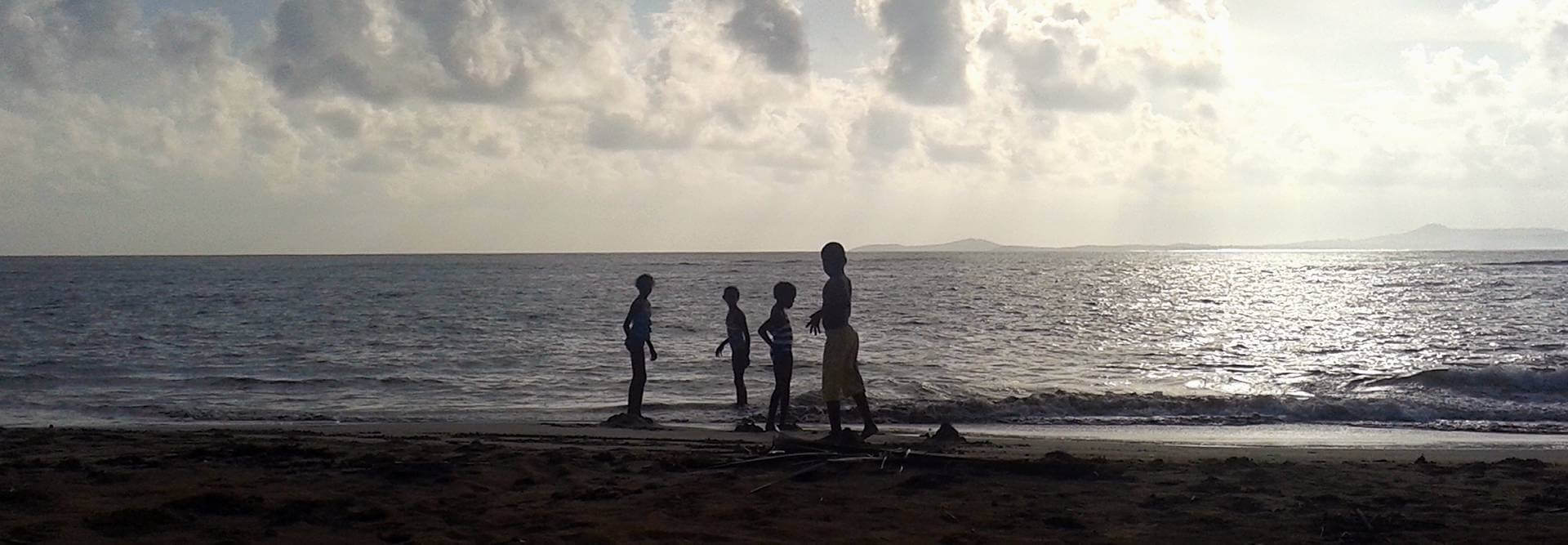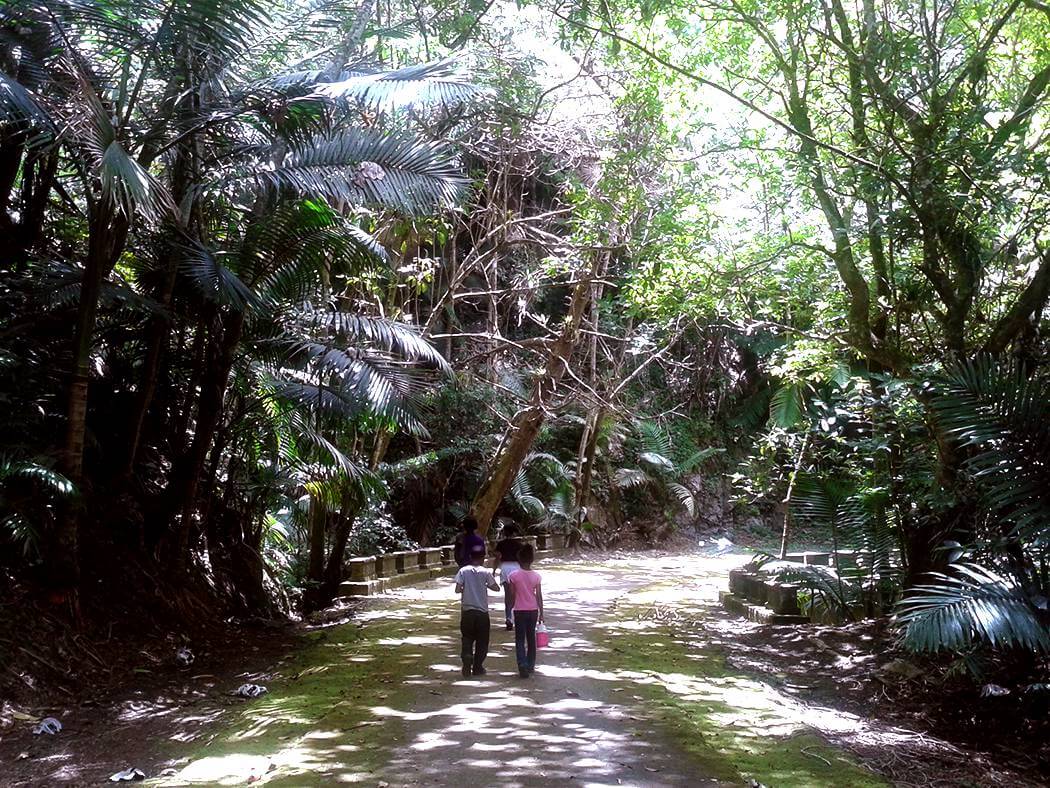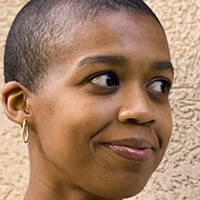Ours First: One
When unschooling is discussed, the practitioners presented or referenced tend to be families that are white and middle class or rich. The inevitable questions come up: Can poor or working class families afford to pull their children out of conventional schools? How can single-parent-families do this? Have non-White families even considered this fascinating new way of educating?
Then the inevitable responses: “Maybe poor families can do it, but with lots and lots of work.” Or, “Single parents will have to be quite creative in order to make this work.” Or, “Families of color don’t necessarily do this as often as White parents, but there’s a growing number that are. So that’s great!” The problem with these questions and subsequent responses is that they position Whiteness and wealth as the default standard-bearers of unschooling and other Self-Directed Education practices.
Of course, centering Whiteness and wealth is common practice in the settler-colonial, imperialist context that is the United States, which requires enslavement and genocide in order to maintain itself. However, in the name of resisting this practice, it is important for those of us interested in Self-Directed Education to take issue with the assumption that it falls under the purview of White wealth, as that assumption more accurately reflects the normalized and dominant identities of a Western-dominated global system, rather than the groups that historically practiced Self-Directed Education, whether voluntarily or involuntarily. Indeed, a consideration of historic education Indigenous practices in the lands presently called the United States – and the practices of various groups who have been legally or circumstantially excluded from schooling – should remind us that the very groups not often seen as ‘typical’ unschoolers actually have extensive histories of Self-Directed Educative practice.
When discussing Self-Directed Education here, I speak as one existing at the intersections of multiple marginalized identities, as a member of groups whose survival within this settler colony hinges upon an understanding of the individual as an inextricable part of and dependent upon both human and non-human community. Based on this positionality, then, my understanding of unschooling and other unforced education practices is not merely ‘allowing’ children to ‘do what they want’ all day. Rather terms like unschooling, natural learning, and Self-Directed Education are, to me, shorthand for the fostering of a human existence that values each individual’s exploration of how to be – while also recognizing that this being occurs within a wider human- and non-human context, a context that is affected by and can affect the individual, and upon which the individual is dependent.

Under this definition, living without school is not only about the learner. It is about all who surround the learner – both human and non-human, alive and inanimate. Such living not only requires community, but it requires the health of that community. Not only a learner’s search for purpose, but a search for that purpose in a world of other purposes just as valuable as one’s own. It requires an awed humility – a recognition of one’s greatness and smallness, and the commitment to live fully within both. It requires a trust in instinct – an acknowledgement that our heart and gut have always been right, though the dominant culture tells us we are wrong.
Marginalized groups have been learning the world for a long time, and without school. Before and throughout this colonialist era, it is the way we learned to manage our food systems and organize communities. It is the way we learned to predict weather and navigate seas. It is the way we learned transportation routes and our stories. It is the way we learned ourselves and others. It is the way we learned who the oppressors really were, despite what they told us about themselves in their schools.
It is the way we learned to survive under Western colonialism and imperialism. And it is the way we will thrive beyond it.

Ours First: Two
I am not seeking someone else’s words on this one. I do not need another perspective. I do not need advice or input from someone I do not know, whose intentions will always be hidden from me. I do not need confirmation or affirmation when I say:
this was ours first.
A simple truth that has been made obscure, beaten down into the dirt and dust and grime so much that we believe we are dirty and dusty and grimy, too. So that we think the things that come from us are not worthy. So that we cannot even conceptualize what comes from us anymore, as it is so quickly spirited away, co-opted even as it is maligned, made into vulgar mutations that we, in our lack of imagination, prefer. We no longer recognize the things that come from us.
Even though they were ours first.
Sometimes we have an inkling, though. It sneaks up on us when we are not expecting it. A sad look in a child’s eye, for example. Or the sight of that child walking into a building simultaneously so close and so far away. Perhaps it comes as a hard awareness, slamming us with a rush of schedules, exhaustion, and conflict.
We have long known that we are fitting into a way of being that is not our own. Rather than wondering whether there is an alternative, however, we know that there is a better way. Maybe some of us always knew, but struggled to admit it to ourselves because of family schooling traditions or our own relationships with schooling. Maybe we’ve recently begun listening to the voice speaking inside us. Maybe the better way makes logical or logistical sense. Whatever reason brought you here, know that:
this was ours first.
That means that you can look to yourself and your people for solutions, for ideas, and for expertise. You can trust yourselves for the answers. You have those answers within you – and have had them for a long, long time. You can look beyond what is and toward a different way of being, a way of knowledge beyond oppression, of learning and living without compulsion. Your people have been doing this work of self-trust, knowledge creation, and liberatory imagination throughout their history... and it’s why your life is possible. Such non-compulsive living and learning, then, is not a new thing – it is, in fact, part of your ancestral tradition. Your very existence is evidence of that.
Were your people able to live lives where they were completely free to trust themselves and their knowledge-making practices all the time? Probably not. This lack of complete freedom is what it means to live as a marginalized person in a colonialist context. I assert, however, that any work leading to the health and endurance of a marginalized community requires knowledge-creation and -perpetuation that runs counter to the dominant model. Despite disruptions to marginalized groups’ liberatory, non-coercive educative practices, then, these groups’ continued existence within a White, settler-colonial context requiring their subjugation or elimination is evidence of this counter-education.
It is reductive, of course, to assume that marginalized groups, when given the chance, would not enact (or have not enacted) their own types of knowledge coercion and manipulation. This undoubtedly occurs, as forcing people to do things they do not want to do is not solely a Western concept. However, in a wider social and historical context that assumes Western dominance in all areas, and in which we currently find ourselves, the pressing issue is not that a marginalized group acts in ways similar to the dominant group – such a similarity may actually be expected. Rather, the issue is that Western knowledge-creation dictates that even divergence from the dominant model and institutions be White in order to be legitimate, palatable, or non-threatening – indeed, sometimes divergence must be White in order to be recognized as existing.
Such dictates lie, of course. Your people have been doing this – existing and resisting, learning the world and their freedom – for years and years. They’ve been doing it for themselves and with each other, and without school as we know it. Despite how the narrative is compiled around you, then, and despite whoever tries to sell you whatever is already inside of you, remember:
Ours. First.

This article was originally published in two parts, here and here and has been reprinted by permission of the author.
If you enjoyed this article and feel called to give back to ASDE, here are ways you can support our work:
- Donate money
- Share our content with others! Click one of the buttons above to easily share on Twitter, Facebook, or email.
- Consider becoming a Contributor for Tipping Points
Tipping Points Magazine amplifies the diverse voices within the Self-Directed Education movement. The views expressed in our content belong solely to the author(s). The Alliance for Self-Directed Education disclaims responsibility for any interpretation or application of the information provided. Engage in dialogue by reaching out to the author(s) directly.






